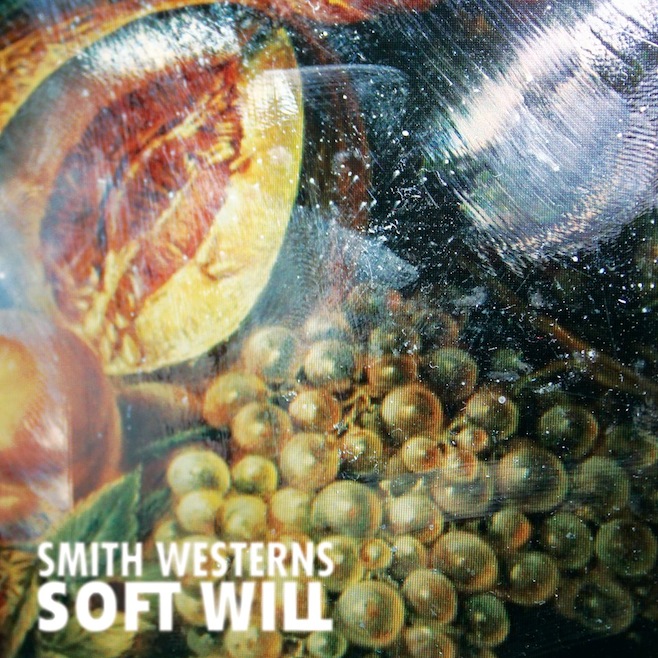Smith Westerns second album Dye It Blonde showed a lot of growth from their debut album, taking the scrappy sound and refining it into more structured pop songs that still manage to brim with an infectious boisterousness. Soft Will continues with the group’s maturation, toning down the exuberance of Dye It Blonde into more measured and studied songs that lose none of their pop sensibilities.
Thematically, too, the advancement in age shows through. Whereas Dye It Blonde was in many ways a celebration of youth and displayed an attitude of loving life and that juvenile feeling of immortality, Soft Will is a coming-of-age in many respects. The band often singing about enjoying the times and friends they’ve had and putting value in the days they have. The hook on “Idol” states that “every day is a lesson” while “Fool Proof” and “White Oath” show some early adulthood jadedness. There was always sweetness to Smith Westerns’ songs, but it seems more genuine here, with singer Cullen Omori singing about laughing and joking with his friends in “White Oath,” and “Best Friend” is an ode to those closest to his heart and the times they’ve shared. This is all capped off by album closer and stand-out “Varsity,” which sums up the mixed feelings of one has when looking back at your younger days and realising they’re long gone. This only gets a little overbearing on the gushy “Cheer Up,” but even that song’s saccharine subject matter becomes more palatable when you’re swept up in the lilting gait.
A lot was made of the classic rock influences of Dye It Blonde, and there are certainly still nods here. There are echoes of Oasis in many songs, while the instrumental “XXIII” that blooms naturally off the back of pop-rock gem “Glossed” is pure Pink Floyd. However, Smith Westerns are certainly showing that they’re growing into their own sound steadily; this time they show less of a penchant to dive headlong into choruses or guitar solos, letting them work their way into the songs more naturally. The grander presence of pianos in some songs certainly bolsters their sound, while their guitar-led tracks are never without some kind of sparkling adornment mixed in expertly.
Soft Will is certainly not as immediately infectious as Smith Westerns’ previous outings, but that does not make it a weaker album. There are still many injections of fun in the wordless gang vocals and theatrical guitar solos. Many of the songs here take their time to build to their full sound, and by the time you reach their last minute you’ll be surprised by how much is going on in what started out as a simple tune. Soft Will often finds Smith Westerns looking back fondly on the times they’ve had, but judging from the way they’re maturing as a band, they have many more to look forward to in future outings.

